The Walls Within – Working with Defenses against Otherness
Also see Symposium program
Friday, 9th July 12.30pm
Symposium Opening
Welcome Speech: Prof. Dr. Steen Visholm (Roskilde University)
President of the ISPSO
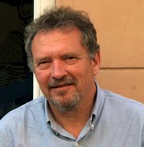
Friday, 9th July
PANEL 1
Split, development, standstill based on the history of the Berlin Wall
The Berlin Wall divided the city for 28 years. Since its fall in 1990 it became a symbol for a split that has been successfully overcome. As a monumental building, it was also a striking symptom of a profound split within the German-German society that still holds on. How are dividing processes of social realities associated with splits in the inner world? Did the Berlin Wall, similar to the myth of the Tower of Babel, mean that people in West and East no longer speak the same language? What role do memorials play in the process of working through the side effects of the history of the division of Berlin? The panel addresses these and other questions in discussion with each other and with the audience.
Panel 1 Speakers:
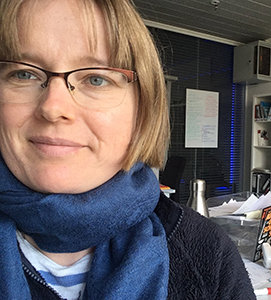
Dr. Juliane Haubold-Stolle
Juliane Haubold-Stolle studied history and political science in Göttingen, Torun and Geneva. She worked as a curator and research assistant in different museums. Her current position is in the Berlin Wall Foundation (Stiftung Berliner Mauer) in Berlin, her current project an open air exhibition explaining the history of the East Side Gallery.
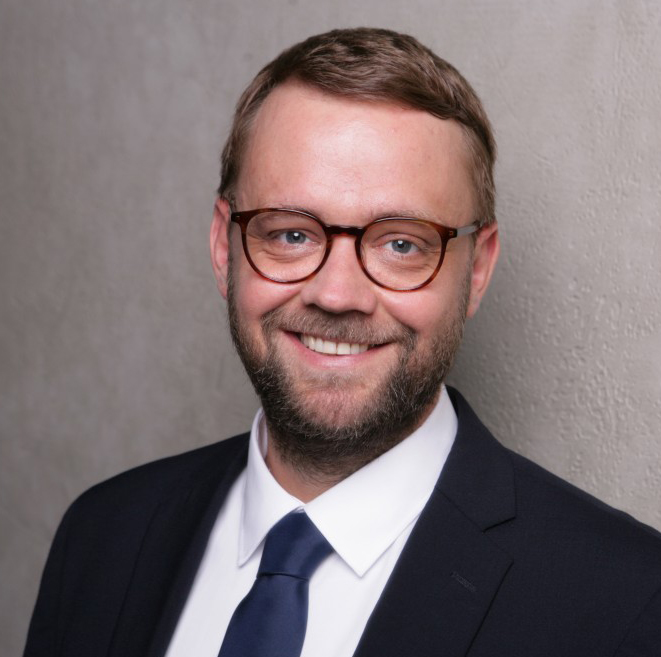
Dr. Remko Leemhuis
Remko Leemhuis has been serving as AJC Berlin Ramer Institute’s Acting Director since September 2019. His areas of focus include contemporary antisemitism, Islamism, and security issues. Dr. Leemhuis studied political and oriental studies at the Philipps University of Marburg and the University of Berkeley, California. He received his Ph.D. in 2018, writing on German Middle East policy in the 1960s and 1970s.
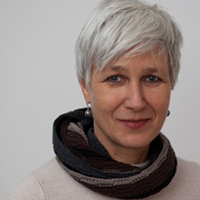
Dagmar von Wilcken
Dagmar von Wilcken (* 1958) is a German exhibition designer.
Wilcken studied object design and visual communication at the Berlin University of the Arts until 1987. Since 1995 she has focused on the Holocaust. Her most famous exhibitions include Jews in Berlin – 1938–1945 in the Berlin Center Judaicum (2000) and the place of information for the Memorial to the Murdered Jews of Europe in Berlin opened in 2005.
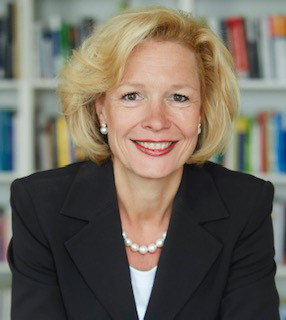
Moderator: Prof. Dr. Claudia Nagel
President Elect of ISPSO, Professor of Organization Sciences, Chair Change and Identity, Vrije Universiteit Amsterdam, NL, Visiting Professor Hull University Business School, UK.
Claudia is a trained psychoanalyst, organizational psychologist and economist. She runs her own consulting firm Nagel & Company leadership consulting and works with top executives and boards on leadership, strategy and change issues. She also is an author, her latest books are “Psychodynamic Coaching” (2021) and “Behavioral Strategy. Thoughts and feelings in the decision-making process” (2014) and speaks frequently on international conferences and corporate occasions.
www.nagel-company.com/index.php/about-nc-en.html
Saturday, 10th July
PANEL 2
Tackling the Twice
In an early, previously unnoticed text, Freud (1893) coined the phrase that it was mankind’s hottest wish to be allowed to do something twice. This Twice marks a form of repetition that has always been the source of fate for humanity: the first time it just happens to us, the second time we wish to do it by ourselves. Freud’s formula tells us about dealing with traumatic experiences, painful cuts and fateful repetitions in tackling the Twice. But why do things repeatedly go wrong when we try to ‘do it by ourselves’, even while attempting to avoid bad choices? Currently, the world community has again been hit by dramatic events: pandemic, racism, climate change – all effects of human decisions and choices. The question of whether humanity will tackle the Twice to ensure its continued existence has become an ethical challenge. The panel raises the question of how repetitions that go wrong can be dealt with in such a way that sustainable living conditions can emerge from them.
Panel 2 Speakers:
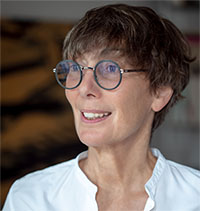
Prof. Dr. Marie-Luise Angerer
Marie-Luise Angerer is professor of Media Studies at the European Media Studies program at the University of Potsdam. From 2000-2015, she was professor of Media and Cultural Studies/Gender Studies at the Academy of Media Arts Cologne. Member of the European Network How Matter comes to Matter (2014-2018), and of the Research Network Affective and Psychotechnology Studies (DFG 2015-2017). She is the Spokesperson of the Graduate Program Sensing: The Knowledge of Sensitive Media (funded by Volkswagen Foundation) and Acting Director of the Brandenburg Center of Media Studies (ZeM). Her most recent publications include Feministisches Spekulieren. Genealogien, Zeitlichkeiten, Narrationen (co-edition with Naomie Gramlich, 2020) Ecology of Affect. Intensive milieus and contingent encounters (2017), Desire After Affect (2014), Timing of Affect (co-edition with Bernd Bösel and Michaela Ott, 2014). Her most recent research focus on the question of a nonconscious opposed to the psychoanalytical unconscious, a digital-affective nonconscious emerging as a zone of human and nonhuman agency.
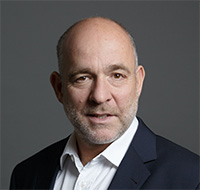
Martin Engelberg
Martin Engelberg is a psychoanalyst and leadership consultant in Vienna. He is the executive partner of the Vienna Consulting Group, has been consulting executive teams and is organizing and facilitating leadership, team development and coaching programs. He is a member of the Vienna Psychoanalytic Society, International Psychoanalytic Society and the ISPSO. In 2017 Martin Engelberg became Member of the Austria Parliament where he serves in the committees for foreign policies, EU-affairs, culture and human rights. He is also the party’s spokesman for international development cooperation, chairman of the British and member of the US friendship group of the Austrian parliament. Furthermore, he is an adjunct professor at the Vienna University of Economics and Business, President of the Sigmund Freud society and regular columnist to various Austrian newspapers and magazines.
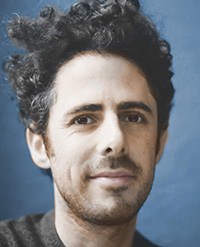
Dr. Leon S. Brenner
Leon Brenner is a postdoctoral research fellow and visiting scholar at the University of Ghent and lecturer at the International Psychoanalytic University, Berlin. He is a member of the APPI, LOB, and a founder of Lacanian Affinities Berlin (laLAB) and Unconscious Berlin. His latest book on the subject of the psychoanalysis of autism is called The Autistic Subject: On the Threshold of Language, where he presents a novel account of autistic subjectivity from a Lacanian psychoanalytic perspective. Website: https://leonbrenner.com
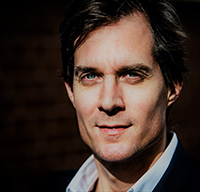
Moderator: Dr. Moritz Senarclens de Grancy
Moritz Senarclens de Grancy works as a psychoanalyst, executive coach, and supervisor in Berlin. He studied law, art history and culture science at the universities of Passau, Nizhny Novgorod and Berlin. He received his doctorate in cultural studies with a thesis on the role of metaphor in Freud’s psychoanalysis. He is author of several books. His upcoming title is ‘Der heißeste Wunsch der Menschheit’ (this October at Matthes & Seitz Berlin). As chair of the planning committee, he organizes the ISPSO 37th Annual Meeting 2021 Berlin Online Conference. Website: https://www.grancy.eu/about-1/
Sunday, 11th July
PANEL 3
Organization and Leadership – What governance systems and individual power skills are really key to managing the effects of digitalized markets and globalized supply-chains in uncertain times?
Flexibility is a key capability for managing companies in order to meet the complex and fast-moving challenges of globalized supply-chains and digitized markets as we have seen intensified during the covid-19 crisis. On the other hand, we face neo authoritarian patterns, marginalization of ideas and ‘walled up’ thinking in organizations and companies. They point to deeper rigid societal patterns, especially in education, that continue to be imparted. They slow down the change in values in companies, for example the inclusion of women or people of culture in top management positions and they also impair the agility of the organizations. The capability for adaptation of every organizational culture deserves to be analyzed. Because in complex and fast-moving competition, the success of companies is decided not least by their ability for adaptation through cooperation, mutual respect and a deeper understanding of the value deficits in the way they respond to demand from customers and citizens. Overcoming prejudice against business partners from other cultures or individual colleagues requires emotional maturity, social skills, and an understanding of the psychodynamics and power of unconscious valencies – and so does understanding the situation the organization is in.
Panel 3 Speakers:
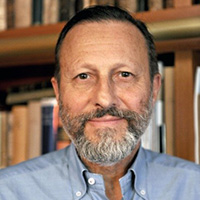
Dr. Daniel Vasella
Daniel Vasella, M.D., works as board director, coach and strategic consultant. After the foundation of Novartis in 1996 he led the company for 17 years as CEO (1996-2010) and Chairman of the Board of Directors (1999-2013). Since 2013 Dr. Vasella is an Honorary Chairman of the Board of Directors for Novartis AG. Before the Novartis merger, Dr. Vasella was CEO of Sandoz Pharma Ltd. and a member of the Sandoz Group Executive Committee. From 1988 to 1992, he worked for Sandoz Pharmaceuticals Corporation in the United States, prior to which he held a number of medical positions in Switzerland. He graduated with an M.D. from the University of Bern and completed executive training at Harvard Business School. Dr. Vasella also trained as psychoanalyst and executive coach. He was awarded an honorary doctorate from the Faculty of Medicine at the University of Basel and the Harvard Business School Alumnus Award and many other distinctions. Dr. Vasella is a member of the board of directors of PepsiCo, Inc., the American Express Company and Numab Therapeutics AG. He is also a foreign honorary member of the American Academy of Arts and Sciences and of various cultural establishments. Daniel Vasella is married and father of three children.

Dr. Philip Boxer
Philip Boxer BSc MBA PhD brings many years of strategy consulting experience to his work with clients in public, private and not-for-profit sectors, developing clients’ capabilities for leadership within highly networked environments; and using approaches that enable clients both to scale learning across networked organizations and to develop the agility of the supporting business platforms. Philip is a member of the (Lacanian) Centre for Freudian Analysis and Research and the International Society for the Psychoanalytic Study of Organizations. The focus of his research and writing is on ways of understanding and working through the maladaptive responses of organizations to turbulent business ecosystems in the pursuit of greater sustainability.
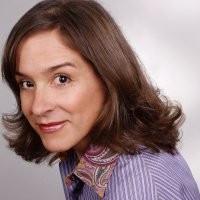
Claudia Heimer
A senior-level facilitator, coach, mediator and author, Claudia helps executives and non-executives to develop strategy, transform their organisations and navigate the boardroom. She is co-founder of FIT BOARD, an EdTech dedicated to taking governance next level with a gamification-based App that enhances quality of decision making. Her research agenda focused on internationalizing boards, as well as developing international leaders, teams, and organizations. Post-GFC, her interest shifted towards power and psychodynamics in organizational change and, specifically, in mastering dysfunction in the boardroom and developing future-fit company stewardship.
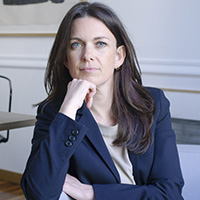
Moderator: Thea Mikkelsen
Thea Mikkelsen, MSc, MA, is an international executive coach and freelance Process designer and leadership program developer in the creative industries. She is also a NonExec board and advisory board member, a candidate in the Danish Psychoanalytical Association, a keynote speaker on the topics of creative leadership, innovation and professional creativity and a writer. She is based in Milan, Italy, with her husband and two daughters.